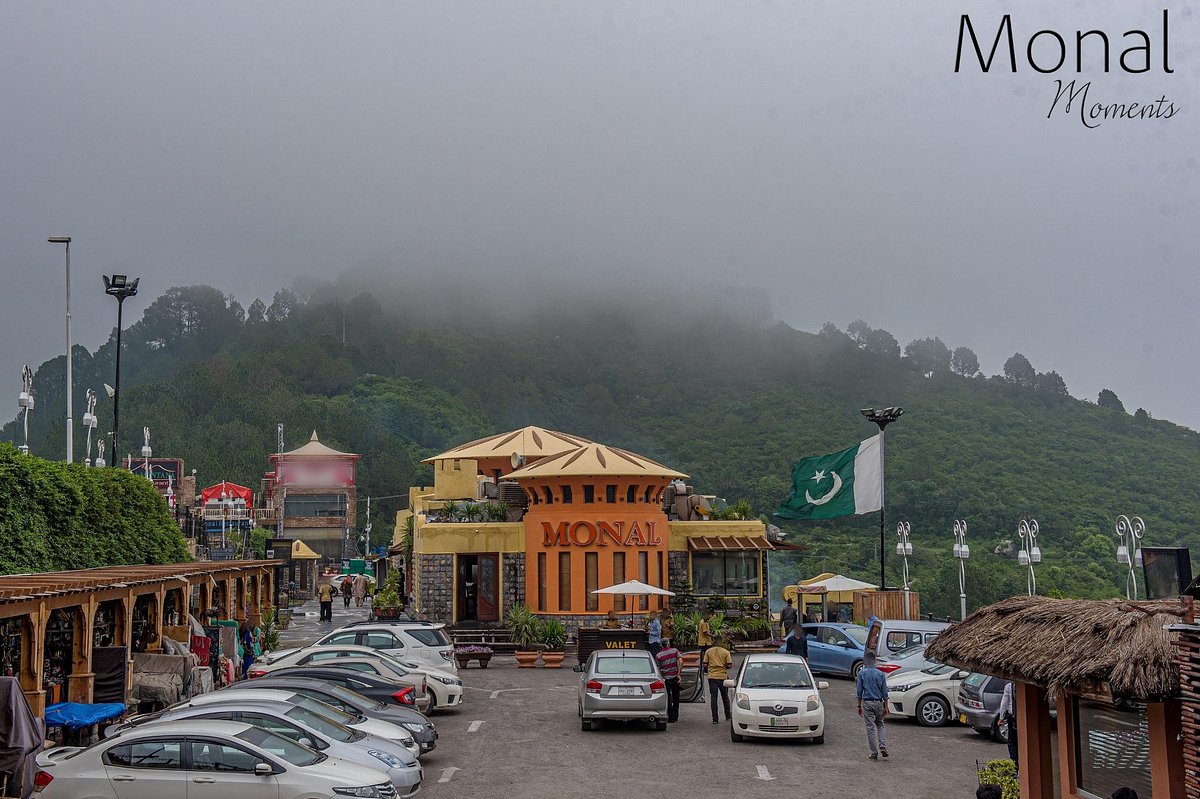
Monal Restaurant to Close Doors After 18 Years on Margalla Hills
Amjad Mehmood
—The iconic Monal Restaurant, a beloved destination for food lovers perched atop the scenic Margalla Hills, is facing an uncertain future. On 11th June 2024, the Supreme Court of Pakistan, led by Chief Justice Qazi Faez Isa, issued an order directing the relocation of all restaurants operating within the National Park Area, including Monal, within three months. The decision has sent shockwaves through the local community, as the restaurant has been a symbol of Islamabad’s culinary and cultural heritage since its inception in 2006.
Monal Restaurant has been more than just a place to eat; it has been a cultural institution in Islamabad. Since its opening, the restaurant quickly gained popularity due to its top-class food quality and the serene, panoramic views of the capital it offered to its clienteles. Every day, hundreds of families visit the restaurant to enjoy a meal in a tranquil environment, far removed from the hustle and bustle of city life. The restaurant became a preferred choice not just for locals but also for diplomats and international visitors, who often frequented the establishment for breakfast and brunch, trusting in its high standards of food and service.
The Supreme Court’s decision to relocate Monal and other eateries from the National Park Area is rooted in environmental concerns. Chief Justice Isa emphasized the importance of preserving the Margalla Hills National Park, a critical natural asset for the country in the decision. The court’s order was a response to an appeal against a previous judgment by the Islamabad High Court (IHC) on January 11, 2022, which called for the sealing and takeover of Monal’s premises.
While the preservation of national parks is undoubtedly a noble cause, the decision has sparked a debate on the balance between environmental conservation and the protection of long-standing businesses that contribute to the local economy and culture.
 The closure of Monal will have significant repercussions, not just for its customers, but also for its employees. Luqman Ali Afzal, the CEO of Monal Group, expressed deep sorrow and frustration over the decision. In a heartfelt notice to his employees, Afzal advised them to start seeking alternative employment, as the restaurant would cease operations on 11th September 2024. He lamented that he could not absorb the approximately 700 workers in other projects within the company, given the short notice and the scale of the business. Afzal also reflected on the journey of Monal, highlighting how it had become the first choice for many Islamabad residents seeking quality food and a peaceful environment to spend time with their families. The closure of Monal, he argued, would not just be the loss of a business but the end of a place that held countless memories for its patrons.
The closure of Monal will have significant repercussions, not just for its customers, but also for its employees. Luqman Ali Afzal, the CEO of Monal Group, expressed deep sorrow and frustration over the decision. In a heartfelt notice to his employees, Afzal advised them to start seeking alternative employment, as the restaurant would cease operations on 11th September 2024. He lamented that he could not absorb the approximately 700 workers in other projects within the company, given the short notice and the scale of the business. Afzal also reflected on the journey of Monal, highlighting how it had become the first choice for many Islamabad residents seeking quality food and a peaceful environment to spend time with their families. The closure of Monal, he argued, would not just be the loss of a business but the end of a place that held countless memories for its patrons.
The Supreme Court’s decision to shut down Monal draws parallels with a similar case from September 2021, when a three-judge bench of the Supreme Court, headed by then-Chief Justice Gulzar Ahmed, ordered the demolition of the Nasla Tower in Karachi. The tower, located on Shahrah-e-Faisal, was deemed illegal, and its demolition left several families homeless, wiping out their life savings and investments. Critics argue that while such decisions may be legally justified, they often fail to consider the broader impact on the public. The Nasla Tower case resulted in a disputed plot of land that remains vacant, while the residents were left without homes. Similarly, the closure of Monal is expected to leave a void in the community, with the Margalla Hills National Park likely remaining unchanged but devoid of a beloved landmark.
The decision to shut down Monal has sparked discussions about the potential consequences for local and foreign investors in Pakistan. When local businesses, built with proper approvals and compliance, are forced to close, it can undermine investor confidence. The uncertainty surrounding such decisions may deter both local and international investors from putting their money into the country, fearing that their businesses could be at risk in the future. Surprisingly, the authorities and officials who play the culprit in allowing the establishment of such businesses without marking any illegal aspect remain untouchable by all means.
As the deadline of 11th September 2024 approaches, the people of Islamabad and the employees of Monal await the inevitable closure with a sense of loss and uncertainty. While the Supreme Court’s decision will remove what it perceives as a hazard from the Margalla Hills National Park, the question remains: at what cost? The closure of Monal will not only affect the livelihoods of hundreds of workers but will also mark the end of a significant chapter in Islamabad’s cultural and culinary history.
The debate over the balance between environmental preservation and the protection of businesses that have become integral to the community is likely to continue. For now, however, Islamabad is set to bid farewell to one of its most cherished establishments, leaving many to wonder if there could have been a better way forward.







